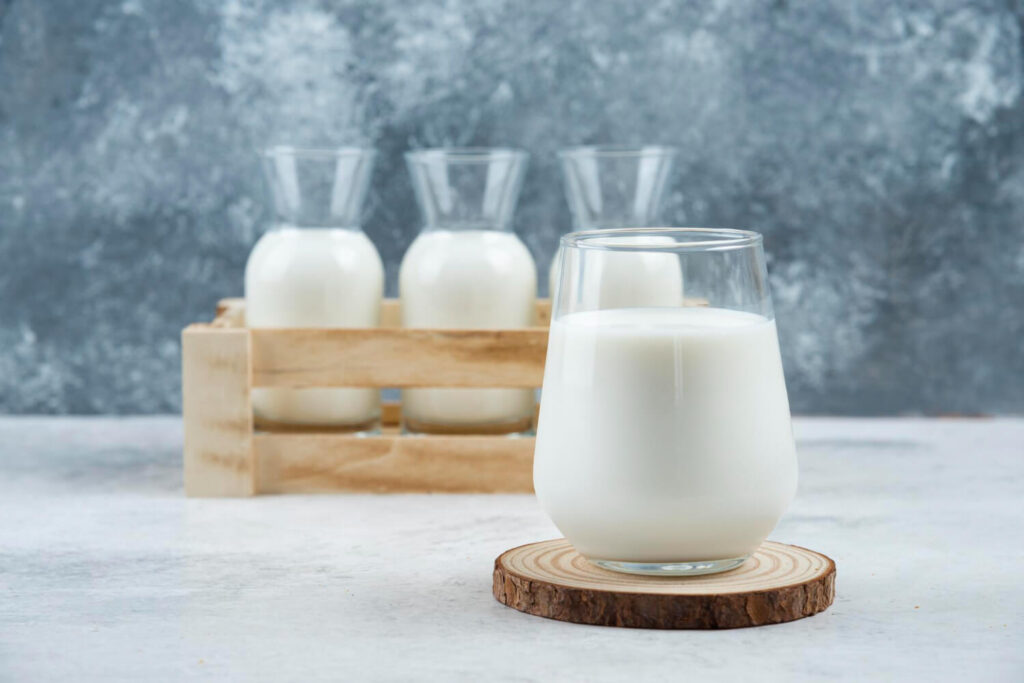For centuries, goat milk has held a place in traditional diets across Europe, Asia, and Africa, often touted as a premium, more digestible, and potentially more nutritious alternative to ubiquitous cow milk. As its global popularity surges, driven by health-conscious consumers and specialty food markets, a critical question arises: Does goat milk genuinely offer superior nutritional benefits? And how can consumers and producers be certain of its purity in an increasingly complex market? Kwinbon provides the definitive solution for authenticity verification.

Nutritional Nuances: Beyond the Hype
The claim that goat milk is "better" than cow milk requires careful scientific scrutiny. While both are excellent sources of essential nutrients like high-quality protein, calcium, potassium, and B vitamins (notably B2 and B12), research reveals subtle but potentially significant differences:
- Digestibility: Goat milk fat contains a higher proportion of smaller fat globules and more short- and medium-chain fatty acids (MCFAs) compared to cow milk. Some studies, such as those referenced by the Harvard Medical School, suggest this structural difference may contribute to easier digestion for certain individuals. Additionally, goat milk forms a softer, looser curd in the stomach due to differences in its casein protein profile, which might further aid digestion.
- Lactose Sensitivity: It's crucial to dispel a common myth: goat milk contains lactose, similar in amount to cow milk (approximately 4.1% vs. 4.7%). It is not a suitable alternative for individuals with diagnosed lactose intolerance. While anecdotal reports of better tolerance exist, these are likely due to individual digestive variations or smaller serving sizes, not inherent lactose absence.
- Vitamins & Minerals: Levels can vary significantly based on breed, diet, and husbandry practices. Goat milk often boasts higher levels of vitamin A (preformed), potassium, and niacin (B3). Conversely, cow milk is typically a richer source of vitamin B12 and folate. Both are excellent calcium sources, though bioavailability is comparable.
- Unique Bioactives: Goat milk contains bioactive compounds like oligosaccharides, which may offer prebiotic benefits, supporting gut health – an area of ongoing research showing promise.
The Verdict: Complementary, Not Superior
Nutritional science indicates that goat milk isn't universally "better" than cow milk. Its advantages lie primarily in its unique fat structure and protein composition, which may offer enhanced digestibility for some people. The vitamin and mineral profiles differ but are not decisively superior overall. For individuals managing cow milk protein allergies (distinct from lactose intolerance), goat milk can sometimes be an alternative, but medical consultation is essential. Ultimately, the choice between goat and cow milk hinges on individual dietary needs, taste preferences, digestive comfort, and ethical considerations regarding sourcing.
The Critical Challenge: Guaranteeing Goat Milk Purity
The rising demand for goat milk products, often commanding premium prices, creates a tempting opportunity for adulteration. Unscrupulous practices, such as diluting expensive goat milk with cheaper cow milk, directly defraud consumers and undermine the integrity of producers committed to quality. Detecting this adulteration is paramount for:
- Consumer Trust: Ensuring customers receive the authentic, high-quality product they pay for.
- Fair Competition: Protecting honest producers from being undercut by fraudulent operators.
- Label Compliance: Meeting stringent international food labeling regulations.
- Allergen Safety: Preventing potentially harmful exposure for individuals with cow milk protein allergies.
Kwinbon: Your Partner in Authenticity Assurance
Combating milk fraud demands rapid, reliable, and accessible testing solutions. Kwinbon, a trusted leader in diagnostic technologies, empowers the dairy industry and regulatory bodies with our advanced Goat Milk Adulteration Detection Test Strips.
Rapid Results: Obtain clear, qualitative results indicating potential cow milk adulteration within minutes – far faster than traditional lab methods.
Exceptional Sensitivity: Precisely detect trace levels of cow milk contamination in goat milk samples, ensuring even minor adulteration is identified.
User-Friendly: Designed for simplicity, requiring minimal training and no complex equipment. Ideal for use at production facilities, receiving docks, quality control labs, or by field inspectors.
Cost-Effective: Provides a highly economical solution for frequent, on-site testing, significantly reducing the cost and delay of outsourcing.
Robust & Reliable: Built on proven immunochromatographic technology for consistent performance you can depend on.
Commitment to Quality and Integrity
At Kwinbon, we understand that the true value of goat milk lies in its authenticity and the trust consumers place in premium products. Our Goat Milk Adulteration Test Strips are a cornerstone in building that trust. By enabling swift and accurate detection of cow milk adulteration, we support producers in maintaining the highest standards and assure consumers they are getting the genuine article.
Ensure the Integrity of Your Goat Milk Products. Choose Kwinbon.
Contact Kwinbon today to learn more about our comprehensive range of food authenticity testing solutions, including ELISA kits for quantitative analysis, and discover how we can safeguard your brand and your customers' trust.
Post time: Jul-25-2025

